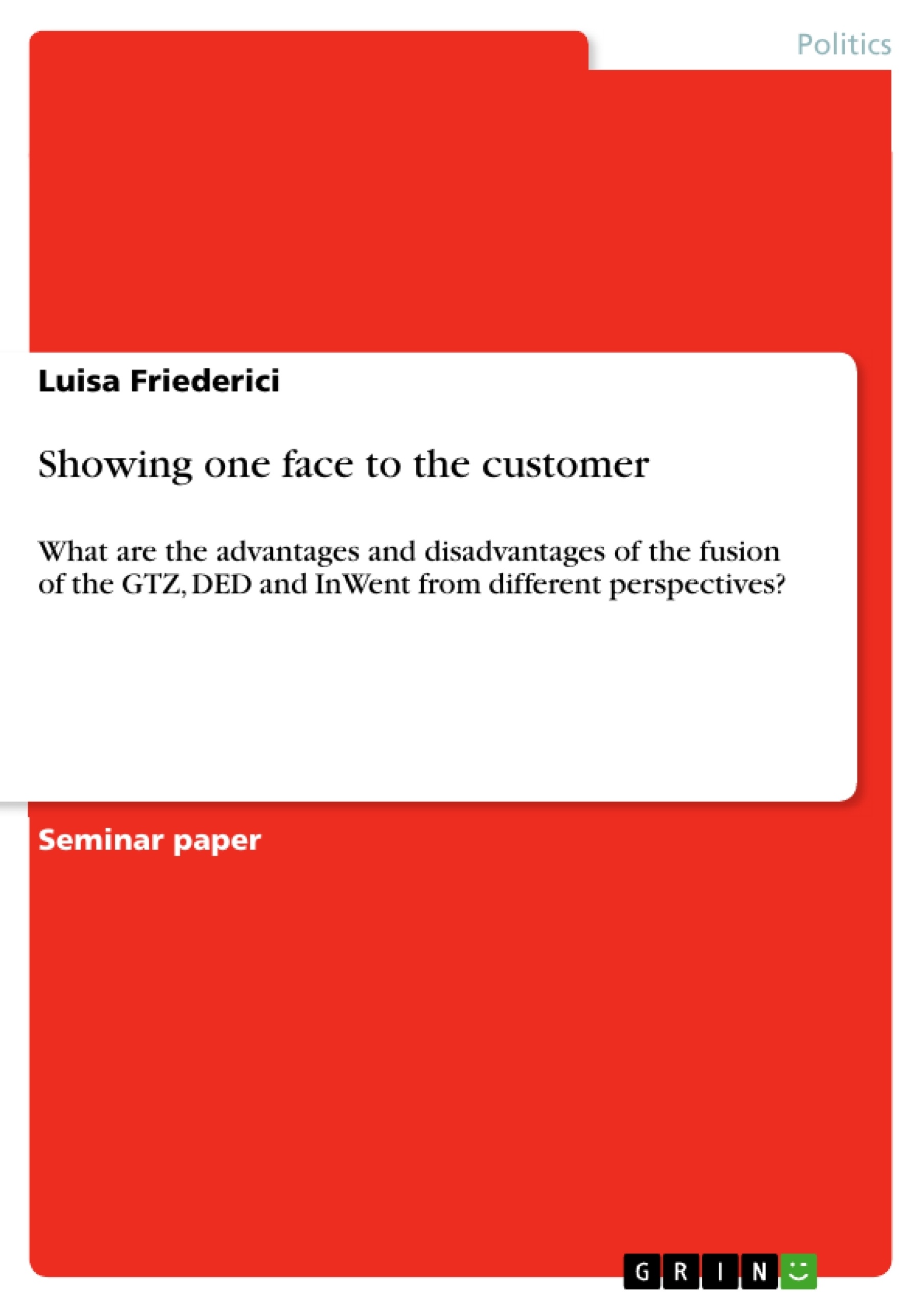Die Hauptseminarsarbeit (Englisch) versucht aus verschiedenen Blickwinkeln zu analysieren welche Vor- und Nachteile die strukturellen Veränderugen der implementing arganizations des BMZ, wie GTZ, DED und InWent haben.
Inhaltsverzeichnis (Table of Contents)
- Introduction
- Initial point and need of further restructuring
- Advantages and Disadvantages of the merge
- From the point of view of the BMZ
- From the point of view of the implementing organizations
- From the point of view of the developing countries
- Conclusion
Zielsetzung und Themenschwerpunkte (Objectives and Key Themes)
This paper analyzes the potential advantages and disadvantages of merging the German implementing organizations GTZ, DED, and InWent. The main objective is to assess the impact of this proposed restructuring on the effectiveness and efficiency of German Development Cooperation. It seeks to explore the perspectives of various actors involved, including the German Federal Ministry for Economic Cooperation and Development (BMZ), the implementing organizations themselves, and the developing countries that benefit from the cooperation. Key themes addressed include:- The historical development and need for restructuring within German Development Cooperation.
- The challenges of fragmentation and coordination within the current structure of implementing organizations.
- Potential benefits and drawbacks of the proposed merger for the BMZ, implementing organizations, and developing countries.
- The impact of the proposed merger on the overall efficiency and effectiveness of German Development Cooperation.
Zusammenfassung der Kapitel (Chapter Summaries)
This paper begins by introducing the complex structure of the BMZ and its implementing organizations. It highlights the unique position of Germany in having a dedicated development ministry and numerous implementing organizations, unlike other OECD countries. The paper then dives into the historical context of restructuring efforts, mentioning the 2002 merger of DSE and CDG to form InWent as an initial step. However, the paper stresses the need for further restructuring to enhance efficiency and international competitiveness. The paper continues by outlining the PWC report of 2006, which emphasized the necessity of reforming the implementing organizations to overcome fragmentation and counterproductive processes. It also explores the debate around the 2007 coalition agreement's goal of merging GTZ and KfW, highlighting the concerns about the BMZ's ability to control and manage the independent implementing organizations. The paper concludes by presenting the current government's plan to merge GTZ, DED, and InWent into a single entity. The anticipated benefits of this merger, such as streamlining operations and improving efficiency, are presented, but the paper also acknowledges the need for further planning and collaboration to ensure a smooth transition.Schlüsselwörter (Keywords)
This paper focuses on German Development Cooperation, restructuring of implementing organizations, GTZ, DED, InWent, BMZ, efficiency, effectiveness, fragmentation, coordination, international competitiveness, developing countries, and OECD.
Final del extracto de 12 páginas
- subir
- Citar trabajo
- Luisa Friederici (Autor), 2010, Showing one face to the customer, Múnich, GRIN Verlag, https://www.grin.com/document/180112




